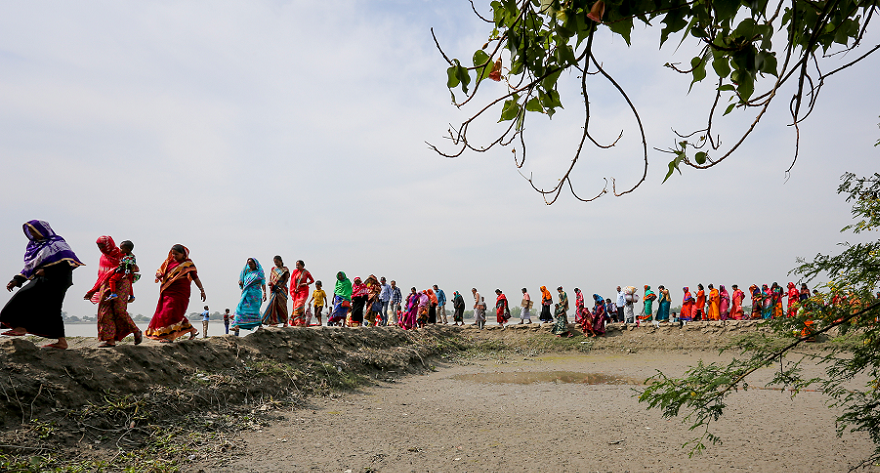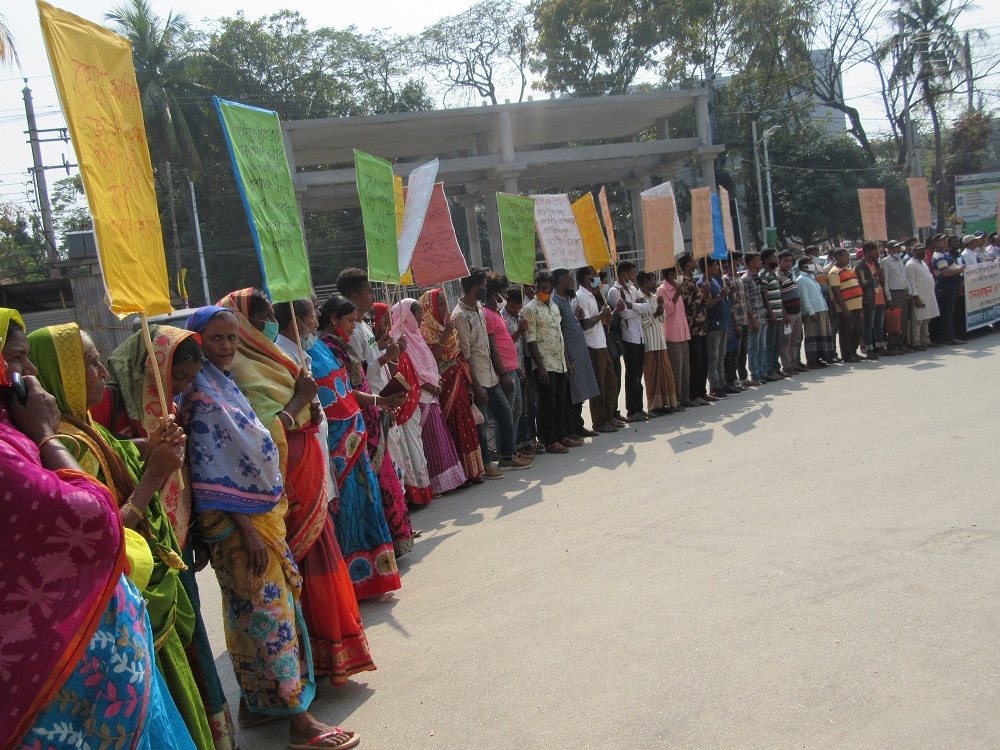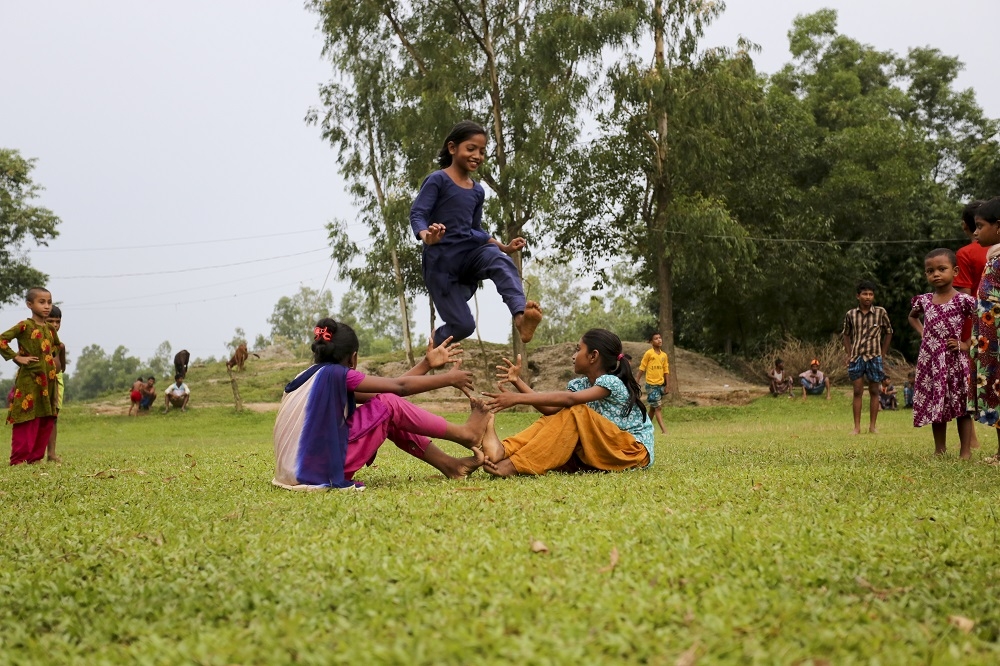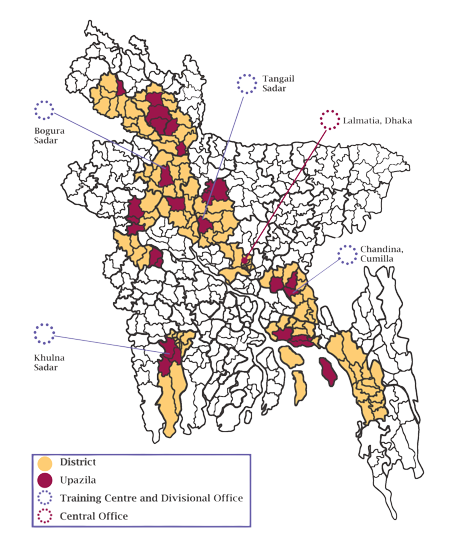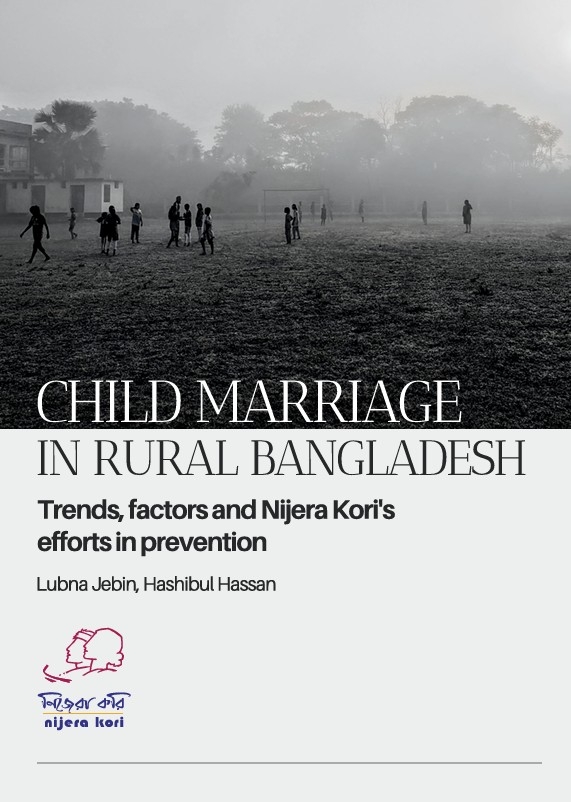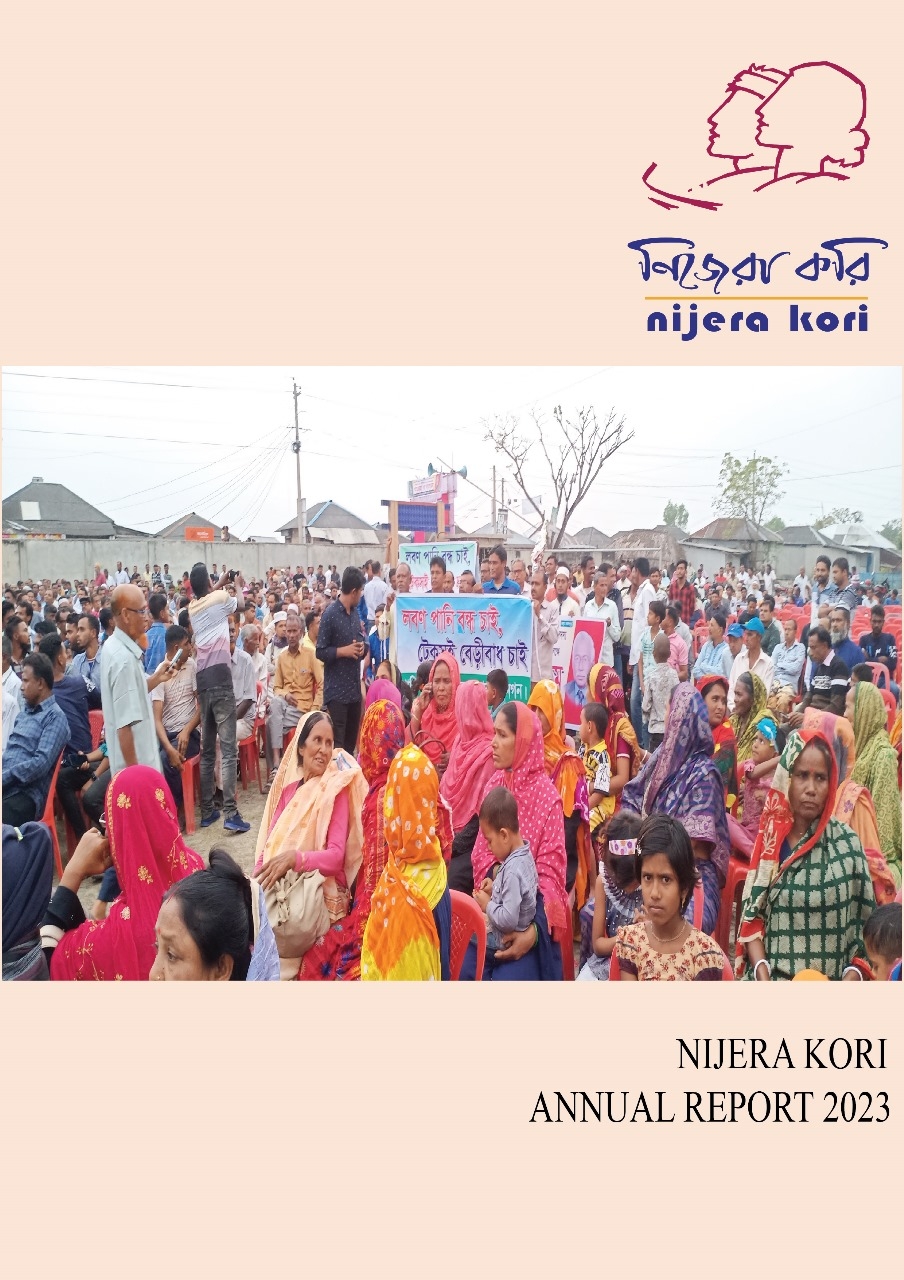Goal
Nijera Kori's goal is to create a society free from exploitation in all its manifestations, including class and gender. Nijera Kori believes the need to transform the structures of inequality, injustice and exclusion at all levels is essential.
Vision
Nijera Kori strives for a fair society by ensuring fundamental rights, removing inequality, and incorporating the marginalised and disadvantaged communities at all levels of decision-making.
Mission
Nijera Kori empowers rural women and men through the formation of autonomous landless groups. It stands out among NGOs in Bangladesh, by prioritising entitlements, rights and accountability over service provision and ensuring strong, active voices of marginalised peoples.
About - Nijera Kori
In 1980, Nijera Kori emerged when activists from some NGOs in Bangladesh recognised the importance of empowering marginalised communities. They saw that patriarchy, poverty, and discrimination were rooted in unequal distribution, power dynamics, and social norms—not due to a lack of resources, as was commonly believed. Rejecting dependency-inducing approaches like microcredit, and service provision, Nijera Kori instead supports rural women and men to form autonomous landless organisations to assert their own collective agency. As it states clearly, it works with the poor and not for the poor.
Read More
Trajectory of Nijera Kori
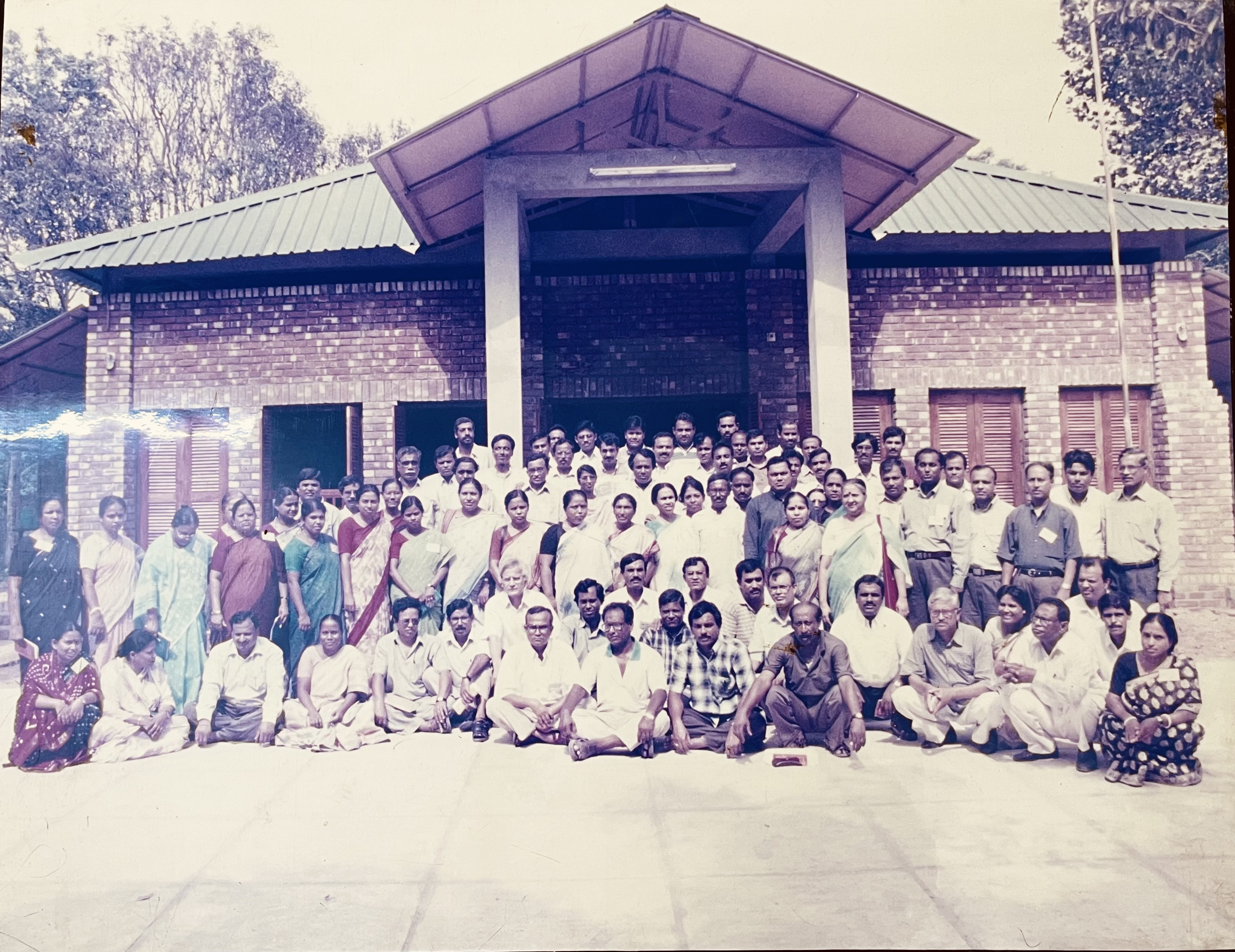
Nijera Kori's narrative started as a response to the plight of rural women amid the aftermath of the 1974 famine. An expatriate nutritionist kickstarted the organisation by offering sustenance, shelter, and skills. Although its founder's departure led to a lull, the organisation sprang back to life in 1980. Motivated staff from other organisations joined, strongly influenced by Brazilian educator and philosopher Paolo Freire’s concept of ‘Concientisation’ seeking a stronger emphasis on empowerment rather than mere service delivery, fostering meaningful community change. This triggered a significant change in Nijera Kori's trajectory, catalysing a commitment to mobilise the marginalised and oppressed for their rights.
Read More
